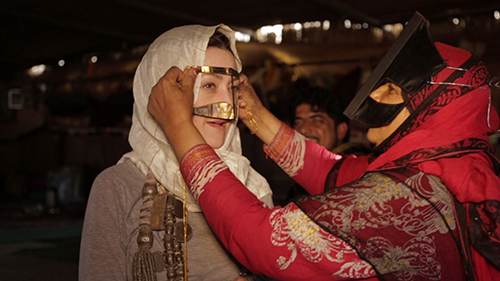You've seen women in burqas, niqabs, and abayas on the news -- but how many do you actually know? And what is it like to wear one all the time?
Thanks to recent events and the advancement of IS, many people in the West see this traditional Islamic dress and cringe. But the truth is the niqab (a veil covering the head and face but not the eyes) has been around for millennia, predating the coming of Muhammad and the founding of Islam.
Related: WATCH: Welcome to Oman: The 2015 'It' Destination
On my recent trip to Oman, I wanted to answer the question, "What is life really like for women in the Middle East?"
I've long been fascinated by that. I was raised in the Midwest, a part of the generation that grew up on Sally Field's Not Without My Daughter (a movie in which Field's character has to smuggle her daughter out of Iran because her Iranian husband will not give them permission to leave). In my hometown of Cincinnati, there were no women in burqas or hijabs, and it was completely alien to me.
As I grew up and traveled and lived around the world, I started to experience other cultures. But even when I visited places like Iraq, I still rarely had the opportunity to talk with the women behind the masks. I was never able to ask all the questions I had, like: Did you go to university? Do you date? And if you do -- how? How do you socialize? Do you have arranged marriages? Can you get a divorce? Can you work after you get married? Do you have rights?
Oman was the perfect place to get all my questions answered. While it's a conservative Muslim country -- for example, women all seem to wear at least a hijab (a headscarf that covers the head and neck but not the face) -- it is still more open. Unlike Saudi Arabia, its neighbor to the north, in Oman women can drive cars, hold office, and more. The country's women have a degree of autonomy not seen in other Middle Eastern nations. So I took the opportunity to ask everything I've ever wanted to know about life as a woman in the Middle East.Thank you to Samta, Faten and Nawal who humored me. Watch the video below and let me know what you think via Twitter (@pfro).

